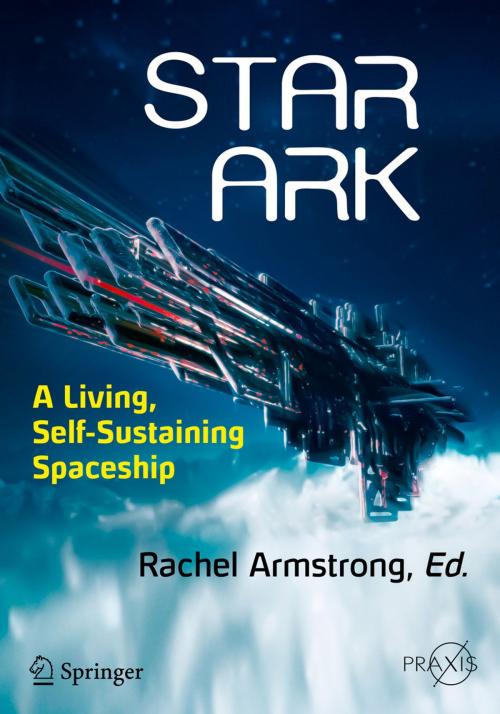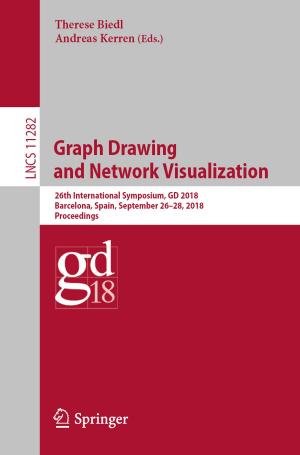Star Ark
A Living, Self-Sustaining Spaceship
Nonfiction, Science & Nature, Science, Physics, Astronomy, Astrophysics & Space Science, Nature| Author: | ISBN: | 9783319310428 | |
| Publisher: | Springer International Publishing | Publication: | November 13, 2016 |
| Imprint: | Springer | Language: | English |
| Author: | |
| ISBN: | 9783319310428 |
| Publisher: | Springer International Publishing |
| Publication: | November 13, 2016 |
| Imprint: | Springer |
| Language: | English |
As space ventures have become more numerous, leading scientists and theorists have offered ways of building a living habitat in a hostile environment, taking an ‘ecosystems’ view of space colonization. The contributors to this volume take a radical multi-disciplinary view of the challenge of human space colonization through the ongoing project Persephone. This book fundamentally challenges prevalent ideas about sustainability and proposes a new approach to resource austerity and conservation and providing truly sustainable approaches that are life-promoting. Readers will learn the details of the plans for Persephone – a real project that is part of the company Icarus Interstellar’s plans for the design and engineering of a living interior on a worldship to be constructed in Earth’s orbit within 100 years. Although the timeframe itself is only an estimate, since it is contingent on many significant developments, including funding and technological advances, the industry consensus is that within 100 years we will see manned space exploration beyond our solar system. This notion is shared by organizations such as the Initiative for Interstellar Studies and the DARPA-funded 100-year starship project. This book specifically develops the principles for the construction of a living habitat within a worldship – a multi-generational starship that contains its own world that supports colonists as it travels across great distances between stars at a speed much slower than light. Far from being a sterile industrial setup, such as the ISS, or even being a bucolic suburbia as proposed by Gerard O’Neill in the 1970s, this worldship will provide the pre-conditions for sustaining life beyond Earth’s environment, which may also lead to the evolution of non-terrestrial ecologies. Drawing on the principles of ecopoiesis and insights offered by the Biosphere 2 experiment that demonstrated what we have to learn about ecosystem construction, this book proposes first designing the soils of such a space. It should then be possible to set up the conditions that a first generation of colonists may experience in leaving our solar system to find new worlds to settle - perhaps in spreading life throughout the universe. Although the book takes a unique view of ecology and sustainability within the setting of a traveling starship it is equally concerned with the human experience on artificial worlds. Chapters come from a range of multi disciplinary thinkers who shed light on the brave new future ahead from different angles.
As space ventures have become more numerous, leading scientists and theorists have offered ways of building a living habitat in a hostile environment, taking an ‘ecosystems’ view of space colonization. The contributors to this volume take a radical multi-disciplinary view of the challenge of human space colonization through the ongoing project Persephone. This book fundamentally challenges prevalent ideas about sustainability and proposes a new approach to resource austerity and conservation and providing truly sustainable approaches that are life-promoting. Readers will learn the details of the plans for Persephone – a real project that is part of the company Icarus Interstellar’s plans for the design and engineering of a living interior on a worldship to be constructed in Earth’s orbit within 100 years. Although the timeframe itself is only an estimate, since it is contingent on many significant developments, including funding and technological advances, the industry consensus is that within 100 years we will see manned space exploration beyond our solar system. This notion is shared by organizations such as the Initiative for Interstellar Studies and the DARPA-funded 100-year starship project. This book specifically develops the principles for the construction of a living habitat within a worldship – a multi-generational starship that contains its own world that supports colonists as it travels across great distances between stars at a speed much slower than light. Far from being a sterile industrial setup, such as the ISS, or even being a bucolic suburbia as proposed by Gerard O’Neill in the 1970s, this worldship will provide the pre-conditions for sustaining life beyond Earth’s environment, which may also lead to the evolution of non-terrestrial ecologies. Drawing on the principles of ecopoiesis and insights offered by the Biosphere 2 experiment that demonstrated what we have to learn about ecosystem construction, this book proposes first designing the soils of such a space. It should then be possible to set up the conditions that a first generation of colonists may experience in leaving our solar system to find new worlds to settle - perhaps in spreading life throughout the universe. Although the book takes a unique view of ecology and sustainability within the setting of a traveling starship it is equally concerned with the human experience on artificial worlds. Chapters come from a range of multi disciplinary thinkers who shed light on the brave new future ahead from different angles.















